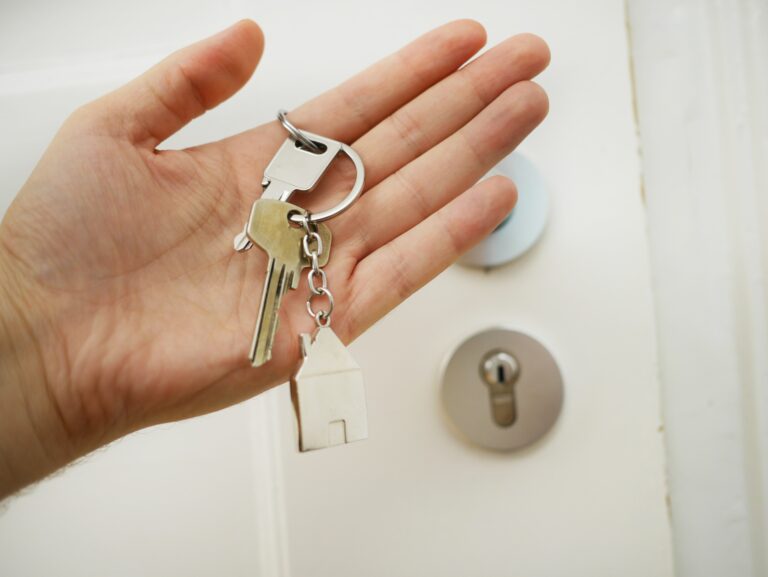Selling a house could be a stressful process – not only do you have to decide on an agent and make sure your home appeals to potential buyers, you also have to remember all the documents needed for the selling process.
We’ve already covered the cost of selling a home in our blog and now we’ve put together this easy guide giving you a checklist of every document you need to remember and what each one includes, so you’ll soon be a property selling pro!
Proof of identity
Starting with the basics, and in order to satisfy anti-money laundering laws, you will need to provide proof of identity. This will include proof of your current address from a document such as a recent utility bill, along with photo identification – it’s always worth checking with your conveyancer or solicitor which document they require.
Property title deeds
You will then have to prove you are the legal owner of the property you are selling by providing the title deeds. If you can’t seem to find them, you should be able to contact the solicitor used when initially applying for a mortgage.
However, if your property hasn’t been sold since 1990, the Land Registry is unlikely to have a copy of the deeds, so you will have no choice but to try your best to locate them your end. If worse comes to worst and you genuinely can’t find them, you will have to apply for a ‘title absolute’ which proves that you’re the legal owner of the home and that you have a right to the freehold and the structures on the property. You’ll also need to show that you’ve had possession for an unbroken period of 15 years. Please note that applying for a title absolute takes a lot longer so if you think you are going to face this issue, you will have to do so significantly before putting your home up for sale.
EPC
An Energy Performance Certificate (EPC) is a standardised document which ranks properties in terms of energy efficiency. These are legally required, and you must’ve at least applied for an EPC before putting your home on the market.
If you don’t have an EPC from the last 10 years, you will have to reapply for an updated one with a qualified assessor – and if you live in Scotland, you will have to provide a home report, which will have to have been carried out within 10 weeks to be accepted. At easyProperty, we offer EPC’s for £90 and Home Reports starting from £300 – find out more about our estate agent fees.
Management information pack – if you’re selling a leasehold property?
If you’re selling a property that is leasehold, you may need to send off for a Management Information Pack, which you or your solicitor can arrange via the freeholder or managing agent. As with lots of these documents, it’s worth doing this as early as possible, as it can sometimes take a while for them to be sent.
Fittings & Contents form (TA10)
The fittings and contents form (TA10) covers exactly what’s included in the sale of your home. It’s so important that both you and the potential buyer have a clear knowledge and are on the same page when it comes to what’s included in the price to prevent delays further down the line and reduce the risk of the buyer pulling out.
Property information form (TA6)
The property information form (TA6) provides a closer look at your home in its current state. Any documents mentioned in this form need to be provided, so you must ensure you have copies of everything on the list beforehand. It often covers the following things:
Boundaries, complaints, proposals, planning, warranties, insurance, environmental matters, parking, services, occupiers, connection to utilities, other charges, and transaction information.
Property searches
Property searches are carried out to ensure there are no major flood risks, building proposals, sewage issues and so on, in the property being purchased. They basically cover all the things buyers will want to know before moving into a new home!
FENSA certificates
FENSA certificates must be provided if you have replaced the windows since moving in – these documents prove that the windows are completely within the building regulations, and they are usually valid for 10 years.
Boiler documentation
This will be required if you or a previous owner of the property have replaced the boiler – if for whatever reason, this can’t be provided, the buyers may ask for an up-to-date service.
Documentation for any property extensions, garage, or loft conversions.
If you’ve made a significant physical change to your property, such as an extension or major renovation works, you would probably have applied for planning permission – which usually takes around 13 weeks to come through.
If you built an extension on your property without applying for planning permission from your local authority, that’s considered an illegal addition, and that can make it impossible for a buyer to get a mortgage on your property.
You can, however, overcome this by purchasing indemnity insurance which will cover a buyer against any costs of future enforcement action, including removal of an extension, for example.
Any guarantees and warranties – electrical units, damp repairs
You shouldn’t be ashamed if something has gone wrong in your property and you have taken action to fix it, it shows you’re a responsible homeowner. Whatever the issues are, damp, knotweed, or anything, just make sure you have copies of receipts or guarantees for work undertaken.
The same goes for any fixtures, fittings, appliances, or pieces of furniture that you’ll be leaving behind – if possible, find the warranties you have for those too!
Electrical certificates
It’s illegal to sell a home without an Electrical Installation Certificate, or EIC. They prove that any electrical installation works carried out on your property were done correctly, according to the building regulations.
You’ll need to have two certificates to prove any electrical work was performed by a registered electrician:
- The Building Regulations Compliance Certificate
- The Electrical Installation Certificate (EIC), or a Minor Electrical Installation Works Certificate confirming that the work certifies BS 7671 – the British Standard for electrical safety
Gas safety certificate
It’s not a legal requirement to have a gas safety certificate if you’re selling your home, but it is highly recommended that the owners get a gas safety certificate issued with an annual inspection from a gas safe registered engineer.
These can be lifesaving as they’ll help to detect any potential issues and being able to provide proof that everything is in working order will, of course, go in your favour.
Mortgage details
You’ll also need to provide information about your mortgage, including your account details, the amount remaining, and any additional loans or charges registered to your home.
If there is any payment outstanding, you’ll need to sign an undertaking. This is to confirm that you’ll use the money from the sale to pay this off, rather than leaving the buyer liable to pay it.
Acceptance of offer
After you’ve agreed a sale with a buyer, your solicitor or conveyancer will draft a document stating the acceptance of the offer.
You’ll also have to sign a transfer of deeds ready for completion. This will be overseen by your legal representative and the contracts will need to be exchanged with the buyer.
Once the contracts have been exchanged and signed, the sale becomes legally binding!
What documents do you need when selling a leasehold?
What documents do you need when selling a leasehold?
If you’re selling a leasehold property, you’ll also need to fill out a Leasehold Management Pack, also known as a TA7 form.
This is often filled in by your solicitor or conveyancer and includes all the information about the lease, such as:
- service charges
- ground rent
- any plans for major works
- the building’s insurance policy details
- details on any management company that has been formed by the tenants to manage the lease/freehold
- any asbestos surveys carried out
- any external wall fire reviews
What documents do you need when you are selling a share of a freehold?
If you are selling a share of the freehold, you’ll need to provide documents relating to the freehold structure such as the Share Certificate as well as the and the Memorandum and Articles of Association of the freehold company.
The buyer of the property will also need the last 3 years’ worth of service charge accounts and a copy of the current insurance policy for the building. If you don’t have these, they’ll be available from your Managing Agents, but you will be charged for them.
Summary / Final thoughts
And that’s it! Now you are aware of all the documents you need to sell your home, you’re ready to go – why not book a free house valuation with us now and get the ball rolling? Or speak to a friendly agent if you have any more questions.







